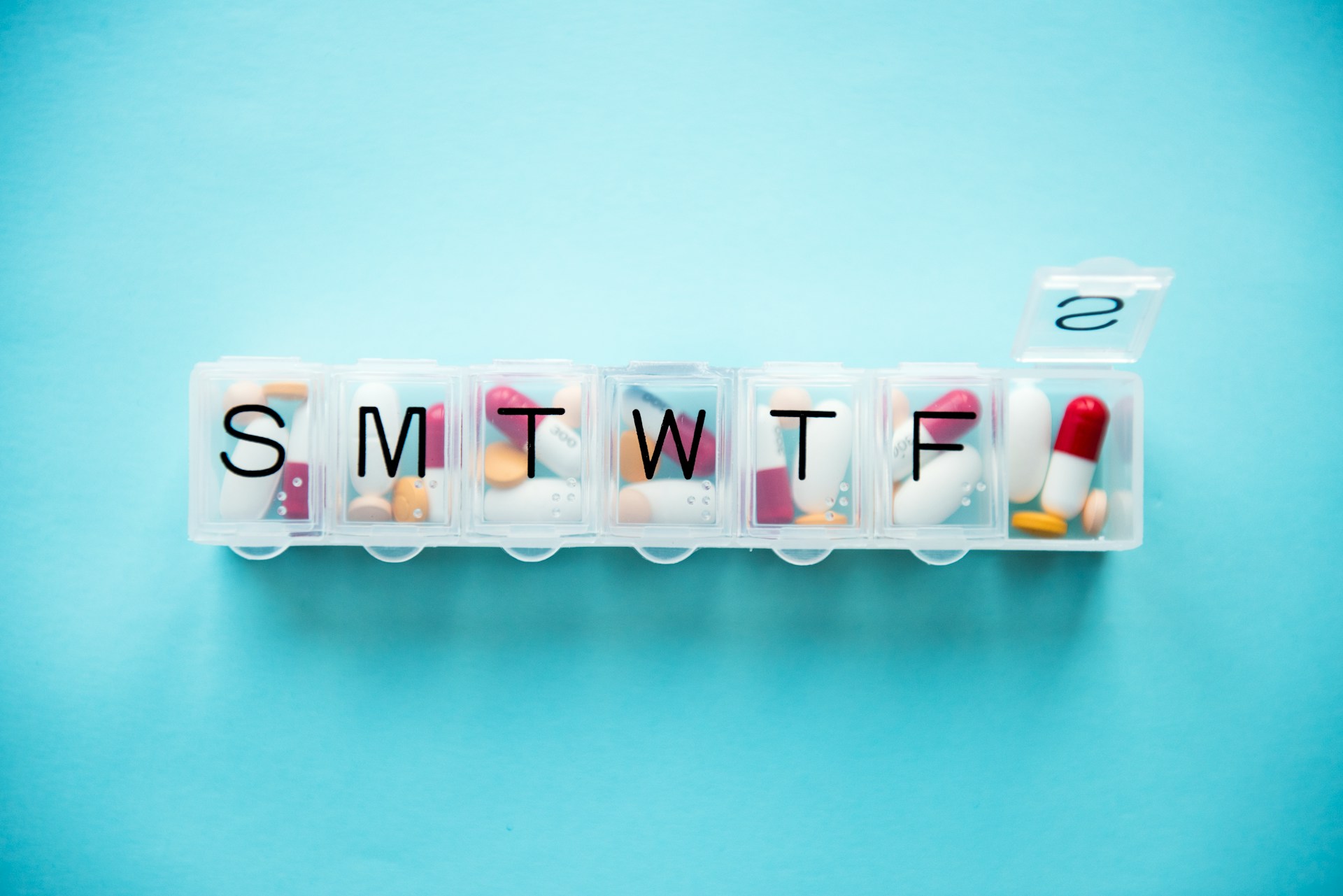Nutrition
Foods to Skip for Better Senior Health According to Experts

As we age, our bodies undergo numerous changes that affect how we process and respond to different foods. Dr. Amit Shah from the Mayo Clinic emphasizes, “The number one thing that happens with aging is [that] your physiology changes, your body composition changes, [and] everything is processed a bit differently.” This means that certain foods, which might have been harmless or even beneficial in our younger years, can become detrimental to our health as we grow older. Here are 15 foods that seniors should consider avoiding to maintain optimal health.
Grapefruit Juice
Grapefruit juice can interfere with medications used to treat high cholesterol, depression, insomnia, anxiety, and high blood pressure. The National Council on Aging (NCOA) notes, “You wouldn’t expect grapefruit to be on a list of foods to avoid after 60, but the juice of a grapefruit can interfere with medications.” It’s better to opt for other fruit juices like orange, cranberry, and tomato in moderation.
Sugar-Packed Drinks
Drinks high in sugar, such as sodas, teas, and coffees, can be particularly harmful. Amy Gorin, MS, RDN, points out, “For example, the 16-ounce chai latte at Starbucks, one of its most popular drinks, has 42 grams of sugar.” Regardless of how “pure” or “natural” a drink claims to be, sugar is still sugar.
Hidden Sugars
Hidden sugars are often found in everyday items like pasta sauces, yogurt, granola bars, instant oatmeal packets, and breakfast cereals. Nancy Farrell Allen from the Academy of Nutrition and Dietetics warns, “Excess sugar can put stress on organs such as the pancreas and liver, which can increase blood sugar and blood triglyceride levels and raise the risk of fatty liver disease.”
Artificially Sweetened Sodas
Diet sodas are linked to numerous health issues, including obesity, sugar cravings, and depression. Bethesda Health reports, “A recent study in the Journal of General Internal Medicine suggests that routinely drinking these artificially sweetened soft drinks may do even more serious damage: they could increase your risk of vascular events like a heart attack or stroke.”
Undercooked Eggs
Consuming undercooked eggs can lead to food poisoning, which is particularly dangerous for seniors. Sun Health Communities states, “Undercooked foods such as eggs, meat, poultry and sushi can cause food poisoning, which can trigger sepsis and septic shock.”
Sugary Yogurt
While plain yogurt is beneficial, sugary versions are not. Dr. Colleen Christmas from Johns Hopkins explains, “Plain yogurt is actually good for you, especially Greek yogurt, which is higher in protein and lower in fat. But when it’s sweetened, you’ve [taken] a really healthy food and made it unhealthy.”
Deli Meats
Deli meats often contain high levels of sodium and additives. Registered dietitian Alyssa Smolen advises, “If people want to have deli meat, they should choose a low-sodium option or get meat that is freshly cut from the deli.”
Excessive Caffeine
Too much caffeine can disrupt sleep, increase anxiety, and cause irregular heartbeats. Sun Health Communities notes, “Caffeine not only keeps many people from getting a good night’s sleep, it may increase anxiety and make your heart beat more quickly or irregularly.”
Fried Foods
Fried foods are high in trans fats, hydrogenated oils, and tropical oils, which can raise cholesterol and are linked to heart disease, diabetes, and cancer. The NCOA explains, “They’re also often loaded with calories, which can lead to increased calorie intake, weight gain, and obesity.”
High-Sodium Foods
A diet high in sodium can lead to fluid retention, high blood pressure, and increased risk of heart disease, stroke, and kidney disease. The NCOA advises, “The American Heart Association recommends no more than 1,500 mg of sodium per day for most adults, especially those with hypertension.”
Foods Heated in Plastic
Heating food in plastic can cause harmful chemicals to leach into the food. Harvard Health warns, “When food is wrapped in plastic or placed in a plastic container and microwaved, substances used in manufacturing the plastic (plasticizers) may leak into the food.”
Ultra-Processed Foods
Ultra-processed foods like frozen pizza are linked to numerous health issues, including a higher risk of dementia. Registered dietitian Jordan Hill suggests, “One alternative to frozen pizza is ordering a pie from your local fresh-made pizza shop.”
Canned Soup
Not all canned soups are bad, but many contain high levels of sodium and unhealthy additives. Dr. Amit Shah notes, “People love soup, but it has a day-plus of sodium in one cup. And sodium is a really important thing to pay attention to if you have congestive heart failure, prior heart attacks or have stiffening of the heart.”
Processed Meats
Processed meats like sausages and hot dogs are high in sodium and preservatives, which can increase the risk of heart disease and other health issues. Opt for fresh, lean meats instead.
Alcohol
Excessive alcohol consumption can lead to numerous health problems, including liver disease and increased risk of falls. It’s best to limit alcohol intake and consult with a healthcare provider about safe levels of consumption.
Making informed dietary choices is crucial for maintaining health and well-being as we age. By avoiding these 15 foods, seniors can better manage their health and reduce the risk of various age-related conditions. Always consult with a healthcare provider for personalized dietary advice.
Let us know what you think, please share your thoughts in the comments below.

Nutrition
Boost Your Brainpower: Top Foods and Drinks for Mental Sharpness

Every three seconds, a new case of dementia is diagnosed globally, making it a significant health concern, particularly in the United States where it is a leading cause of death. Despite these daunting statistics, there is promising news: up to 40 percent of dementia cases might be preventable by altering certain risk factors, with diet being a major player in this preventive strategy.
To enhance brain health and reduce the risk of dementia, it is essential to minimize the intake of red meat, butter, stick margarine, cheese, fast food, and sweets. Instead, focusing on certain foods and drinks can make a substantial difference.
High-quality olive oil is a standout choice for both heart and brain health. A 2024 study in JAMA Network Open highlights its benefits:
“In a prospective cohort study of 92,383 adults observed over 28 years, the consumption of more than 7 g/d of olive oil was associated with a 28 percent lower risk of dementia-related death compared with never or rarely consuming olive oil, irrespective of diet quality.”
Tea, whether green or black, is another excellent addition to a brain-healthy diet. According to a meta-analysis of seven studies involving over 410,000 participants:
“Our meta-analysis demonstrated that tea (green tea or black tea) intake or consumption is associated with a significant reduction in the risk of dementia, Alzheimer’s disease (AD) or vascular dementia (VD). These findings provide evidence that tea intake or consumption should be recognized as an independent protective factor against the onset of dementia, AD or VD.”
While experts generally advise against alcohol consumption, some research suggests that moderate intake of flavonoid-rich red wine might offer cognitive benefits. However, the Alzheimer’s Society cautions:
“Excessive alcohol consumption increases a person’s risk of developing dementia… so if you do not currently drink alcohol, you should not start as a way to reduce dementia risk.”
Incorporating beans and legumes into your diet can also support brain health. Known for their longevity-promoting properties, these foods are rich in fiber, protein, complex carbohydrates, B vitamins, iron, and folate. They are linked to improved heart health, a reduced cancer risk, and a lower risk of cognitive decline. The MIND diet suggests consuming at least four servings of beans weekly, though many of the world’s longest-living populations enjoy them daily.
By making these dietary adjustments, you can take proactive steps toward protecting your brain health and potentially lowering your risk of developing dementia.
Let us know what you think, please share your thoughts in the comments below.
Nutrition
Experts Share the Hidden Factors Behind Vitamin Deficiencies That Might Surprise You

Understanding the reasons behind vitamin deficiencies can be as important as addressing the deficiencies themselves. While many people turn to supplements or dietary changes to boost their vitamin intake, they often overlook the underlying causes that might be affecting their health. We spoke with experts to uncover some surprising factors that can lead to vitamin deficiencies.
Stress
Stress is a well-known health disruptor, and it also plays a role in depleting essential vitamins. Serena Poon, a certified nutritionist and wellness advisor, highlights that stress increases the body’s need for B vitamins and vitamin C, potentially leading to deficiencies. A 2019 review further supports this by stating: “The largest body of evidence demonstrates stress-induced depletion of magnesium and zinc, although several studies (both human and animal) demonstrate the effects of stress on calcium and iron concentrations.”
Aging
As we age, our bodies become less efficient at absorbing and synthesizing essential vitamins. Poon notes that a decline in stomach acid, known as hypochlorhydria, is a primary factor. The Cleveland Clinic explains, “Stomach acid is necessary for digestion and absorption of protein, vitamin B12, and several minerals.” This inefficiency can result in vitamin B12 deficiency, which may lead to iron deficiency anemia.
Vegan or Vegetarian Diets
Adopting a vegan or vegetarian diet can sometimes result in lower iron intake compared to diets that include meat. Patricia Pinto-Garcia, MD, MPH, explains, “Even though many plant-based foods are still a good source of iron, the body has a harder time absorbing iron from plants than from animal products.” Additionally, she points out that, “People can also develop B12 deficiency if they don’t eat any animal-based products (dairy, meat, etc.) since B12 is not found in plant-based foods.”
Excessive Alcohol Consumption
Heavy drinking can interfere with the absorption of B vitamins such as thiamine (B1), folate, and vitamin B12. Nutritionist Peter Brukner OAM, MBBS, explains, “This happens because alcohol can disturb the intestines’ way of taking in vitamins and also affects how the liver keeps them.” Pinto-Garcia adds that alcohol use disorder can cause stomach inflammation, leading to nausea, vomiting, and decreased appetite.
Smoking
Smoking is harmful in numerous ways, including its impact on vitamin levels. Poon points out that smoking can lead to vitamin C deficiency, “which compromises immune health and tissue repair.” This correlation was established in an often-cited 1989 study.
Certain Medications
Some medications can interfere with nutrient absorption. Brukner explains, “For example, proton pump inhibitors (PPIs), which people often use to treat acid reflux, can reduce the amount of stomach acid.” This reduction can hinder the absorption of vitamin B12 and magnesium. Diuretics, on the other hand, can cause deficiencies in potassium and/or magnesium.
Hormonal Fluctuations
Hormonal changes, whether due to conditions like hypothyroidism or life stages such as pregnancy, can alter vitamin requirements. Poon notes, “Pregnant women, for instance, require higher levels of folate (vitamin B9), iron, and vitamin D to support the growing fetus and prevent complications.” Dr. Daniel Perl also mentions that women with heavy menstrual flows might experience iron deficiencies due to excess blood loss.
Inflammatory Bowel Diseases
Inflammatory bowel diseases like ulcerative colitis and Crohn’s can lead to vitamin deficiencies. Pinto-Garcia states, “This happens because the conditions affect how well the bowel absorbs vitamins and nutrients.” Common deficiencies include vitamin K, B12, iron, zinc, and other B vitamins. Treatment for these conditions can help manage inflammation and prevent further gut damage.
Gastrointestinal Issues
Gastrointestinal issues such as hemorrhoids, colon polyps, stomach ulcers, stomach cancer, colon cancer, and celiac disease can cause blood loss in the GI tract, leading to iron deficiency. Dr. Perl highlights that these issues can significantly impact vitamin absorption and overall health.
Poor Diet
A diet lacking in fruits, vegetables, lean proteins, and whole grains can lead to various vitamin deficiencies. While supplements can help, it’s crucial to address dietary habits that might be contributing to these deficiencies.
Uncovering the hidden causes of vitamin deficiencies can be eye-opening. From lifestyle choices like diet and stress to health conditions and medications, numerous factors can impact vitamin levels. By understanding these causes, you can take proactive steps to maintain a balanced and healthy lifestyle.
Let us know what you think, please share your thoughts in the comments below.
Nutrition
Discover the Science-Backed Health Perks of Dark Chocolate

When it comes to indulging in a sweet treat, dark chocolate not only satisfies your cravings but also offers a range of health benefits backed by scientific research. While moderation is key due to its calorie, sugar, and fat content, incorporating dark chocolate with a high cocoa content into your diet can be a wellness-conscious choice. Here are seven compelling reasons why dark chocolate deserves a spot in your routine.
One of the most delightful benefits of dark chocolate is its ability to improve mood. A study conducted in 2022 explored the psychological effects of consuming 85 percent and 70 percent dark chocolate compared to no chocolate over three weeks. The findings revealed that “daily consumption of dark chocolate significantly reduced negative affect in DC85, but not in DC70.”
Dark chocolate also plays a role in enhancing heart health, particularly in terms of cholesterol and blood pressure. Research demonstrated that participants who consumed dark chocolate with plant sterols (PS) experienced reductions in serum total and LDL cholesterol by 2.0 and 5.3 percent, respectively. Additionally, the consumption of cocoa flavanols was associated with reduced systolic blood pressure. “Results indicate that regular consumption of chocolate bars containing PS and CF as part of a low-fat diet may support cardiovascular health by lowering cholesterol and improving blood pressure,” the study concluded.
Nutritionally, dark chocolate is a powerhouse of essential vitamins and minerals. According to the U.S. Department of Agriculture (USDA), a 100-gram bar of dark chocolate with 70–85 percent cocoa provides 96 percent of the daily value (DV) for copper, 66 percent of the DV for iron, 57 percent of the DV for magnesium, and 39 percent of the DV for fiber. However, it’s important to note that this amount also contains multiple servings and approximately 500 calories.
Intriguingly, dark chocolate may also reduce the risk of stroke. A meta-analysis of three studies indicated that consuming dark chocolate could potentially halve stroke risk. This is attributed to the presence of antioxidants known as flavonoids, which possess anti-inflammatory, anti-atherogenic, and antithrombotic properties. However, study author Sarah Sahib, BScCA, cautions that “more research is needed to determine whether chocolate truly lowers stroke risk or whether healthier people are simply more likely to eat chocolate than others.”
Cognitive benefits are another reason to enjoy dark chocolate. A 2016 study highlighted the positive impact of cocoa flavanols and methylxanthines on cognitive performance. The research found that “habitual chocolate intake was related to cognitive performance,” with frequent chocolate consumption being “significantly associated with better performance on the Global Composite score, Visual-Spatial Memory and Organization, Working Memory, Scanning and Tracking, Abstract Reasoning, and the Mini-Mental State Examination.”
Dark chocolate can also contribute to skin health. A study from 2009 examined the effects of chocolate consumption on skin health among 30 healthy individuals. Participants who consumed high-flavanol chocolate experienced significant photoprotection against harmful UV effects. The study concluded, “Our study demonstrated that regular consumption of a chocolate rich in flavanols confers significant photoprotection and can thus be effective at protecting human skin from harmful UV effects. Conventional chocolate has no such effect.”
In summary, dark chocolate offers a myriad of health benefits, from boosting mood and heart health to providing essential nutrients and protecting the skin. While it’s important to enjoy it in moderation, incorporating dark chocolate into your diet can be a delicious way to enhance your overall well-being.
Let us know what you think, please share your thoughts in the comments below.
-

 Health6 months ago
Health6 months ago17-Second Neuropathy Solution
-

 Nutrition10 months ago
Nutrition10 months agoThe Aging Secret of Vitamin D Unveiled
-

 Health1 year ago
Health1 year agoPreventing Falls and Injuries for Seniors
-

 Health5 months ago
Health5 months agoOncologist Reveals Top 5 Cancer Prevention Tips You Shouldn’t Ignore
-

 Nutrition1 year ago
Nutrition1 year ago5 AMAZING Dinner Recipes That Are Also HEALTHY
-

 Lifestyle6 months ago
Lifestyle6 months agoSleep Soundly with These 11 Expert-Approved Bedtime Routines
-

 Health11 months ago
Health11 months agoDownsizing Tips: Simplifying Your Lifestyle
-

 Lifestyle3 months ago
Lifestyle3 months agoMorning Habits That Could Add Years to Your Life